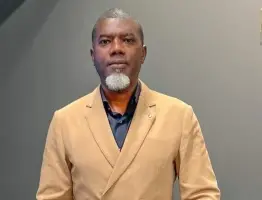The rising unemployment rate in Nigeria has forced university graduates to take up jobs they would never have considered in the past, creating what political scientists describe as a "class suicide" phenomenon.
According to a 2023 report, Nigeria's graduate unemployment rate was estimated at 8 percent for those with post-secondary education. More recent data from the first quarter of 2024 shows that while the national unemployment rate stands at 5.3 percent, youth unemployment, including those with upper secondary education, remains significantly higher at 8.5 percent.
From White Collar Dreams to Survival Jobs
In Nigeria's golden era, white-collar jobs were exclusively reserved for university and polytechnic graduates, with ample opportunities available. Today, the landscape has dramatically shifted, with many highly educated Nigerians turning to occupations once considered beneath their qualifications.
Jobs that were traditionally meant for school dropouts or those without formal education—such as motorcycle riding, commercial driving, house cleaning, generator repairs, and petty trading—have now become viable career paths for graduates, including those with advanced degrees.
Success Stories Amid Adversity
Idowu Adeniyi, who holds a PhD, works as a generator repairer. He began this career after earning his first degree in philosophy from the University of Ibadan in 2007, later adding a master's in Sociology while continuing in the trade.
"I have three employees at the moment and I pay them a salary at the end of the month," Adeniyi told BenriNews. His business has grown to the point where technical schools send students to him for internships.
Nnaoma Kennedy, who holds degrees in Sociology and International Relations, works for Adeniyi after unsuccessful job hunting. "I decided to come and learn this work instead of staying idle at home," he explained.
Abel Nnamani, a Business Administration graduate from Enugu State University of Science and Technology, turned to tricycle ("Keke") driving after an unsuccessful job search. "I searched for a job endlessly without success before I came to ride this tricycle," he said.
Finding Fulfillment in Unexpected Places
Theodore Uzoamaka, an English graduate from the University of Jos, has found success selling honey. Initially disappointed that her education didn't lead to traditional employment, she later discovered the business was more lucrative than many paid positions.
Kemi Adewale, who studied Business Administration at Madonna University, established a small business selling women's products after losing her job at a stock broking firm during the 2008 market crash.
Rowland Akande, an Accounting graduate from Ambrose Alli University, found his calling in estate agency after leaving a low-paying position with an Indian company. "I have established myself; I have a large client base... I wouldn't want to just leave the job; I prefer to be an estate agent. That is what I use to feed my family," he stated.
Challenges and Government Support
Many of these graduates-turned-entrepreneurs cite access to capital as their biggest challenge. They call on the government to provide soft loans with low interest rates to help them expand their businesses.
"The only thing the government can do to help us is to make loans available for us to procure more tricycles," said Nnamani. "If I can get money to buy more keke, like five or 10; I won't bother myself again looking for any job."
Despite the initial disappointment of not securing traditional employment, many graduates have discovered that these alternative career paths can be financially rewarding and personally fulfilling, often outperforming the salaries offered in conventional white-collar positions.
As one graduate put it, echoing Martin Luther King Jr.: "If you can't fly, then run; if you can't run, then walk. If you can't walk, then crawl; but whatever you do, you have to keep moving forward."
Stay updated with more stories like this by following BenriNews on our social media platforms:











